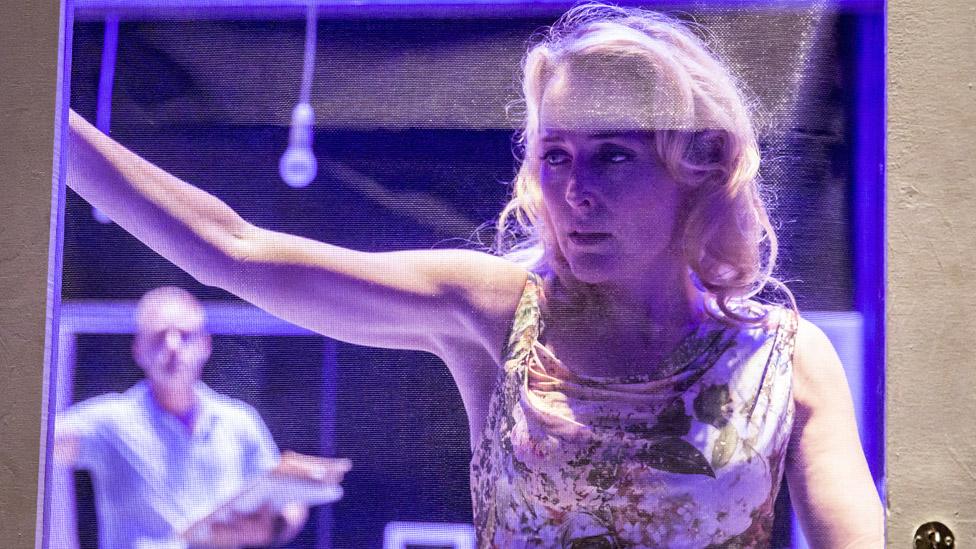Coronavirus: £1.57bn package 'vital' for venues' future
- Published
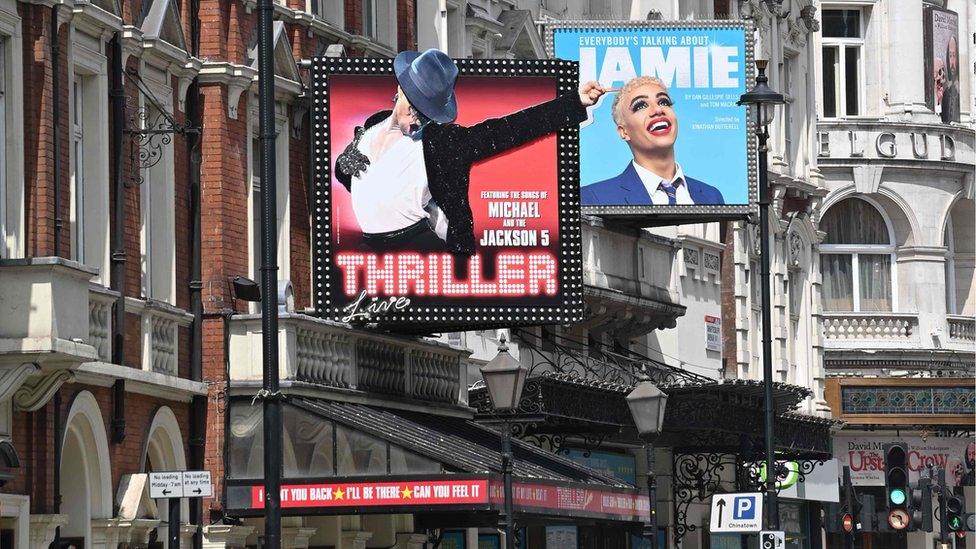
More than 34m people visited the UK's theatres in 2018, according to the most recent figures
The unveiling of a £1.57bn support package by the government for arts venues has been widely hailed by those working in London's cultural sector.
Yet there are many employed within the industry who still worry about what the future may hold for them.
Before the announcement was made, things were looking bleak for the Royal Albert Hall.
The Grade I-listed building has annual maintenance and staff costs of £27m. In the months it was closed it missed out on an estimated £11m of revenue and has refunded nearly £5m worth of tickets.
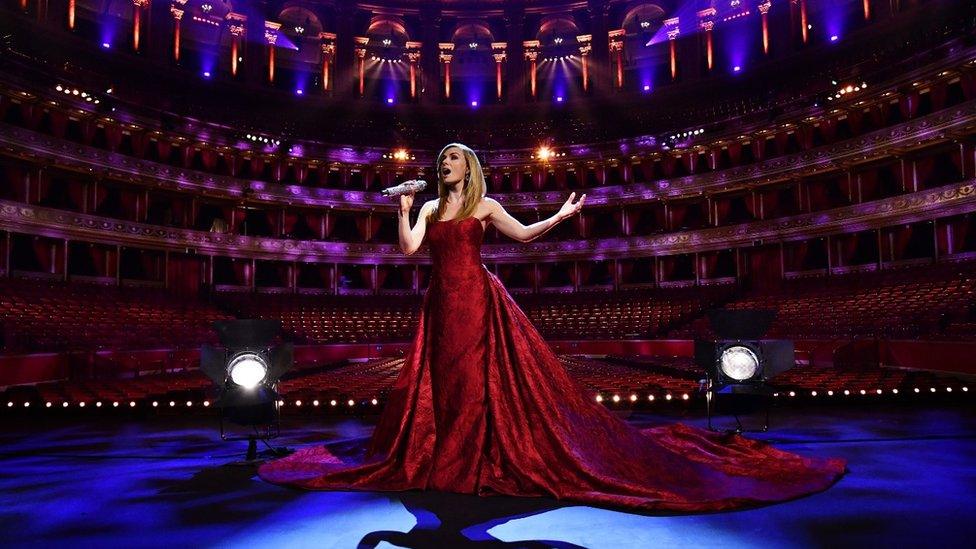
Katherine Jenkins performed in an empty Royal Albert Hall in May to commemorate VE Day
Even with a £5m loan being taken out, the venue's chief executive, Craig Hassall, had predicted it would go bankrupt in March or April next year.
He therefore considers the support package to be "very encouraging" as "it shows the government are listening".
Nevertheless, he has called for more clarity about when venues will be able to open again along with an extension to the job retention scheme, adding that without both "it is still possible we can go under".
For shows to make a profit at the world-famous venue, about 80% of tickets have to be sold.
This means that "social distancing guidelines make it impossible for us to reopen, even if it was cut to half a metre," Mr Hassall explains.
"The support is a positive sign but I really hope we can open, particularly by Christmas. That's so important for us financially, otherwise we're going to have to cut a lot back next year," he says.
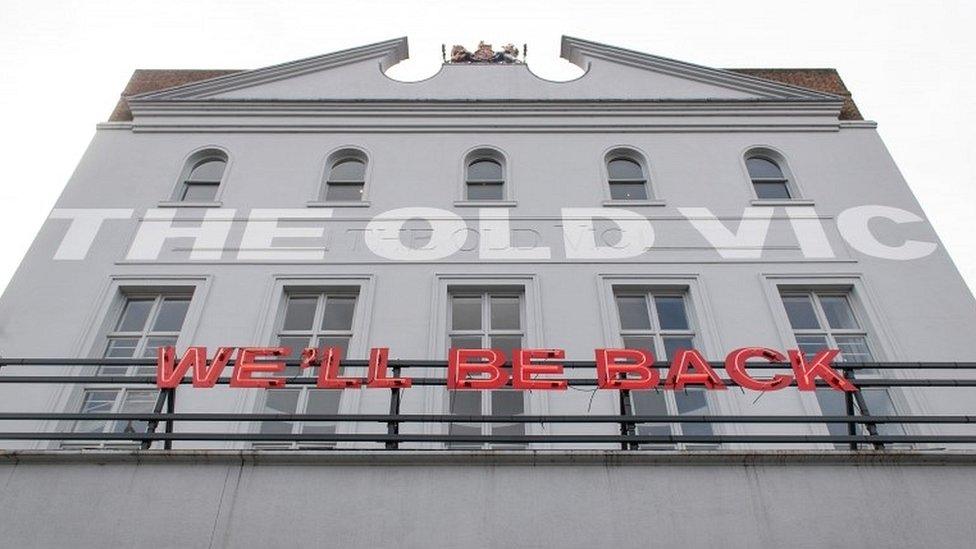
The Old Vic first opened more than 200 years ago
The Old Vic theatre - another famous old venue - is run as a charity without any central funding and was facing similar problems to the Royal Albert Hall.
"We've had no income at all and we've been having to draw on our reserves," says its chief executive Kate Varah.
She says they are "delighted" by the government's announcement, calling it "vital to ensure the survival of the sector".
While she still has serious concerns about her theatre's survival, Ms Varah hopes the money will "create a bridge until we're able to open again".
She believes it is vital the industry is healthy as the nation comes out of lockdown.
"The sector as a whole has a huge contribution to make, both for the economy and society," she says.
How theatre can reopen during the pandemic
The vast majority of the industry's 290,000 employees have been without work since the lockdown began in March.
Ben Delfont, a company stage manager who has worked on shows including Fleabag and The Ferryman, believes it is "great the government have shown they realise the arts are very important".
"It's a substantial amount of money they've announced," he says. "It's a relief there will be an industry to go back to."
He thinks it's important the money is "not just for major organisations and there is a fair representation across the country, not just in London".
He says it was also "concerning" there was no real mention of financial support for workers in the industry, many of whom still face an uncertain future.
"There's a need to ensure there's a workforce to come back to the industry" he says.
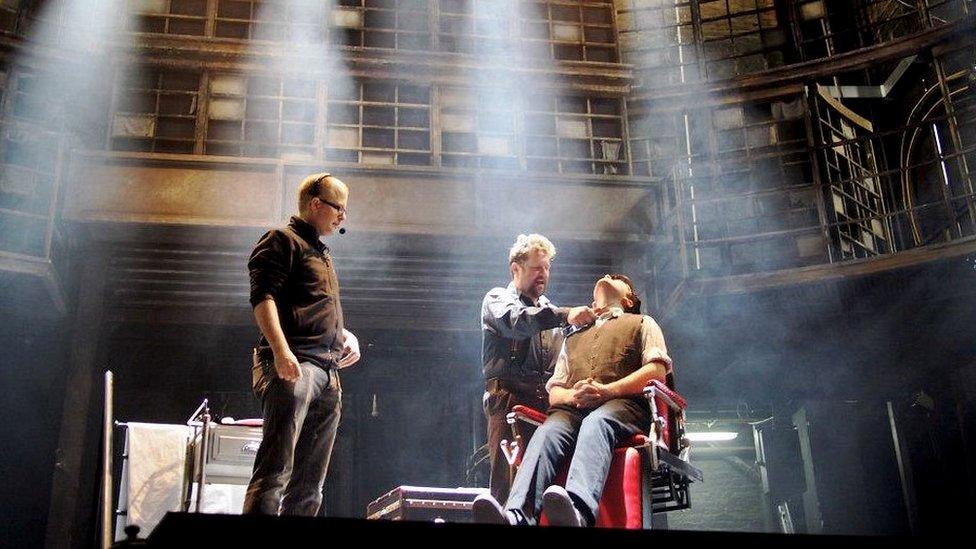
Ben Delfont worked on the 2012 production of Sweeney Todd with Michael Ball and Imelda Staunton
Christian Clark, a deputy head of lighting who has worked both in the West End and on tour, is one of those facing possible redundancy.
"This announcement so far doesn't seem to address the issue of mass unemployment on the horizon for thousands in our industry," he says.
He describes the current situation for him and others in the industry as a "deeply stressful and upsetting time".
Mr Clark does consider the support package to be "massively important" and "appreciated across the theatre industry".
However, he adds that it is "frustrating for the government to seemingly ignore the situation our workforce currently find themselves in".
- Published7 July 2020
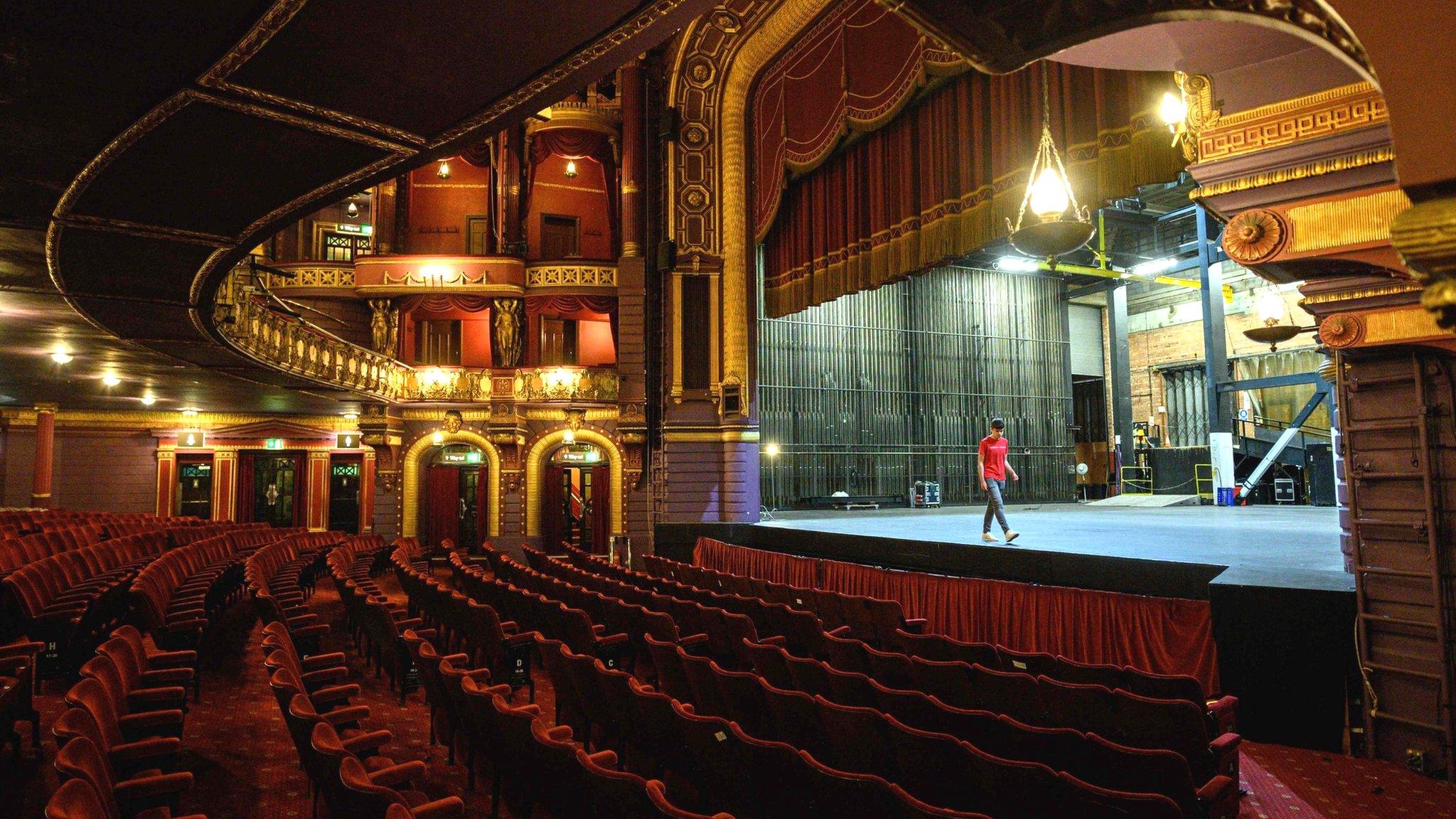
- Published6 July 2020
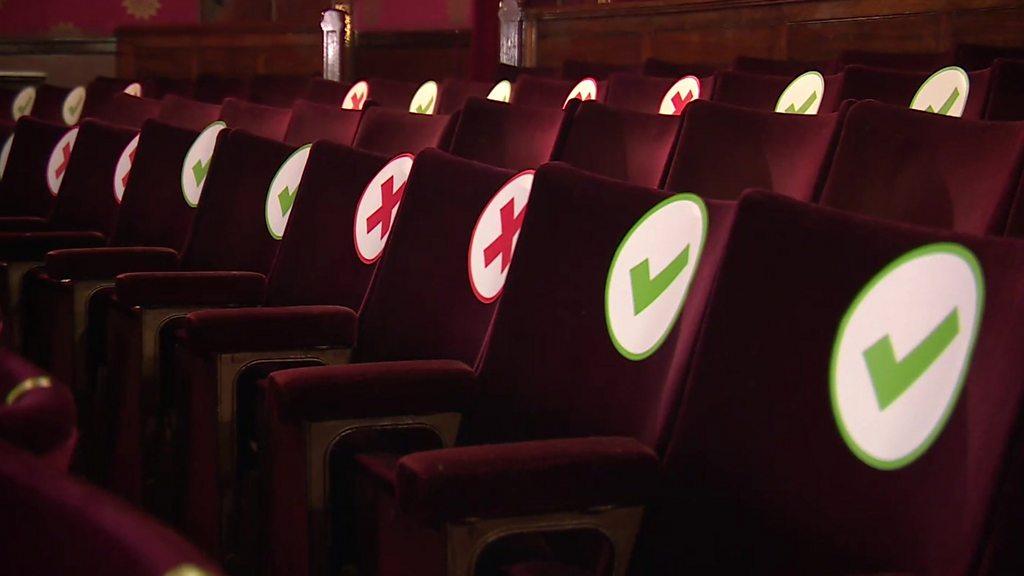
- Published3 July 2020
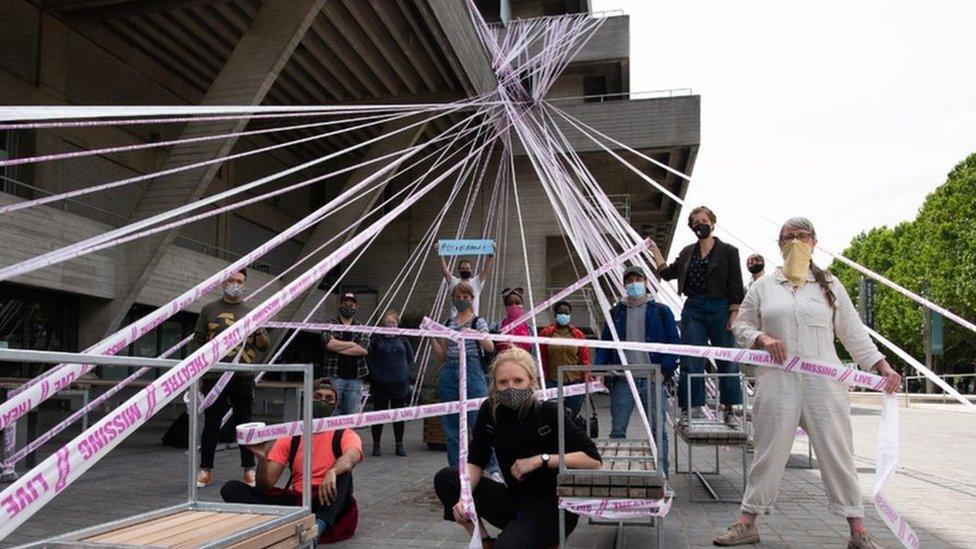
- Published24 June 2020
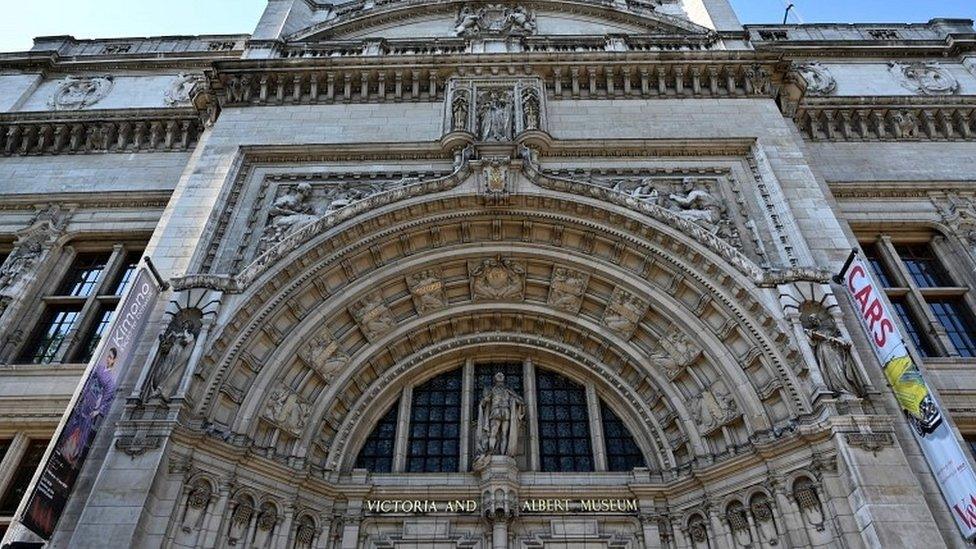
- Published14 May 2020
